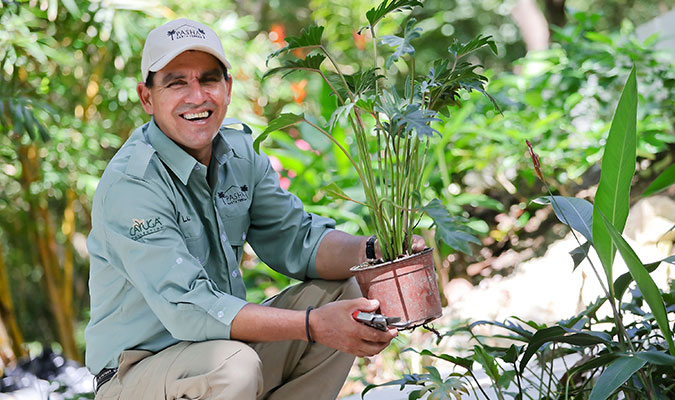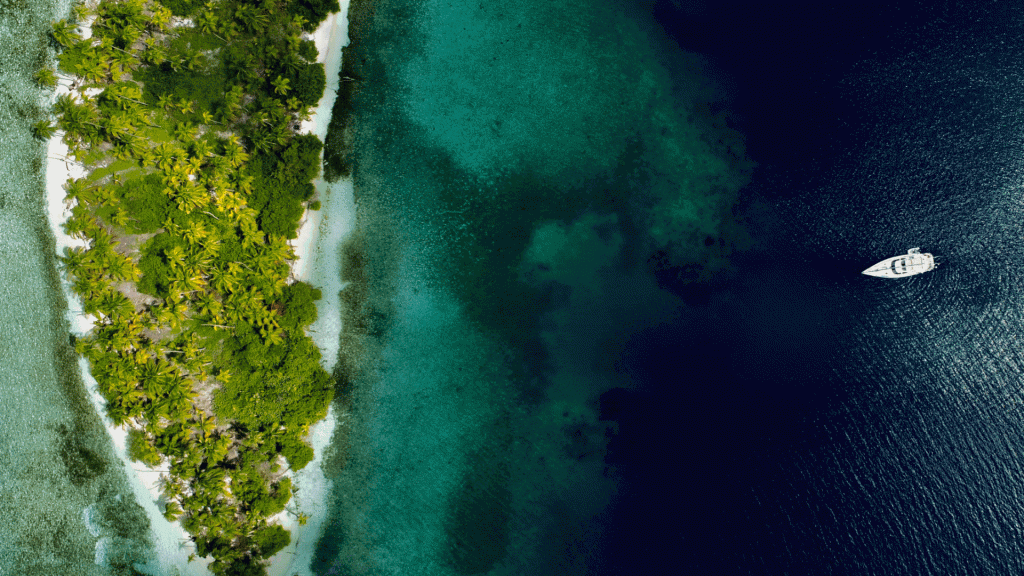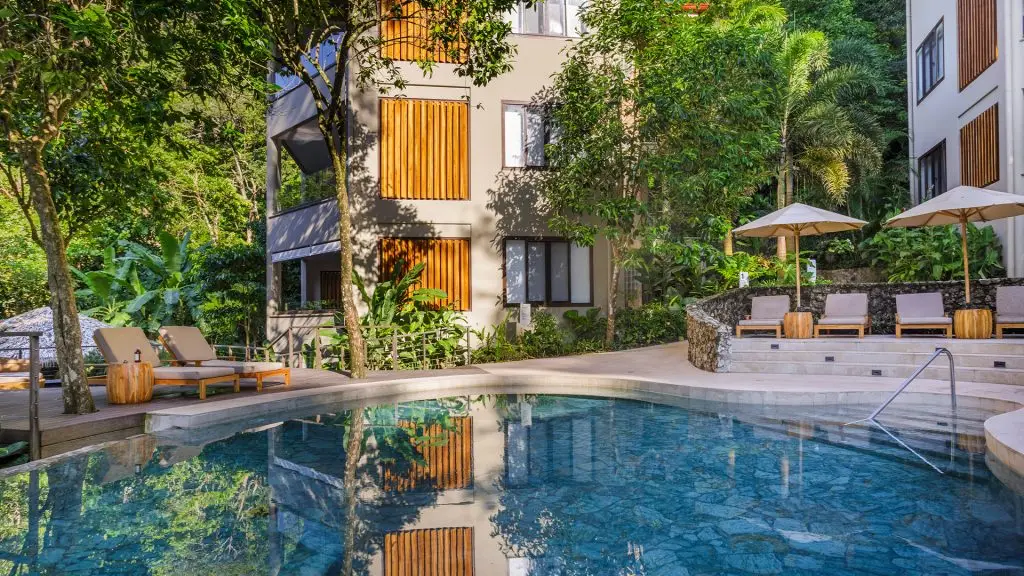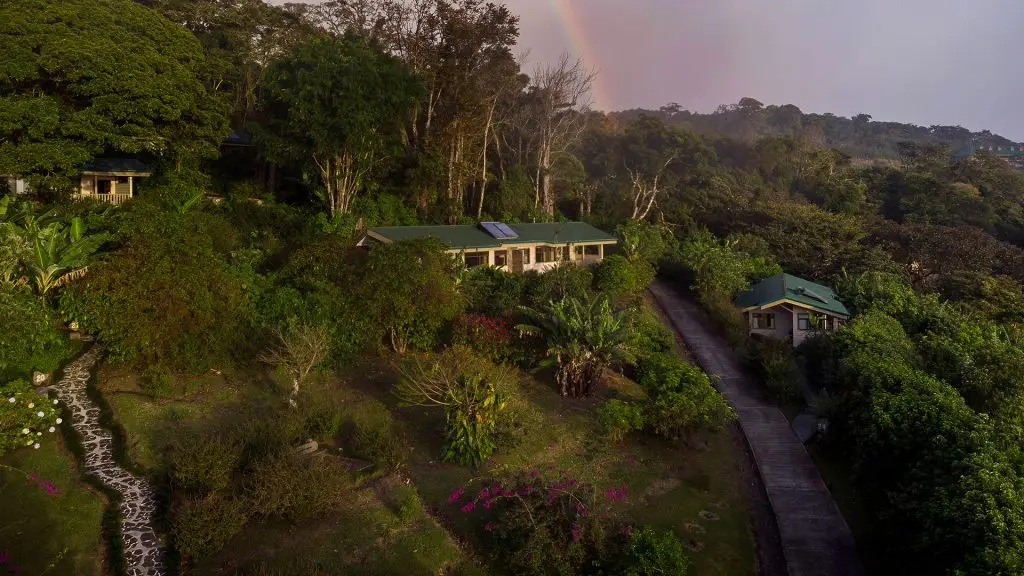Our Changemakers series tells the stories of the people proactively responding to challenges faced by Costa Rica’s natural world and communities. Our aim with these articles is to spread the word, share knowledge, and inspire action.
Travel has the power to change lives—not only for those who explore, but for the communities and ecosystems we touch along the way. For the past 20 years, The Cayuga Collection has been at the forefront of responsible tourism in Costa Rica, proving that luxury and sustainability can go hand in hand. Speaking with Hans Pfister, Cayuga’s visionary co-Founder, underlined just how intentional travel can be. It’s not just about treading lightly but leaving a positive footprint wherever we go. Let’s dive into four key takeaways from our conversation, offering a blueprint for how we can all travel with purpose and leave a positive mark on the world.
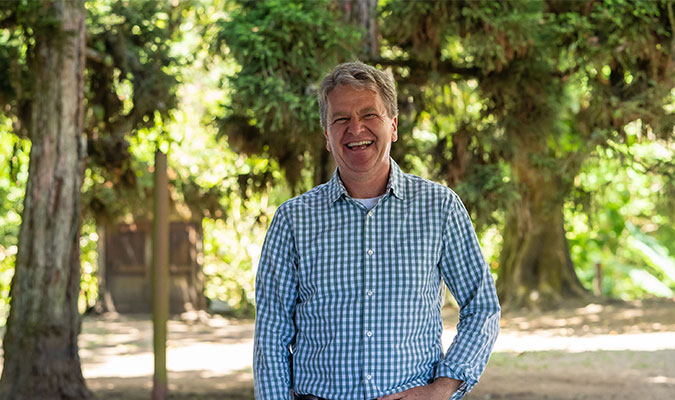
Early Days
Hans’ passion for sustainability and service runs deep, shaped by his own experiences working his way up in the hospitality industry. Growing up in southern Germany, Hans started his career polishing silverware during an apprenticeship at a 5-star hotel and a 3-Michelin star restaurant in the Black Forest. His career path took a pivotal turn when he had the opportunity to study at Cornell University, where he met his Costa Rican wife. The couple ultimately moved to her home country 30 years ago and Hans has lived there ever since. In the early 1990s, Costa Rica’s hospitality industry was still developing, and finding a job proved difficult. Hans eventually became the assistant manager at a Hampton Inn and felt strongly that Costa Rica, with its incredible people and places, deserved better than the Styrofoam breakfast plates and plastic shampoo bottles he saw at the hotel. In 1995, Hans launched the hotel’s first sustainability program—a bold move in an industry that was far from eco-conscious at the time.
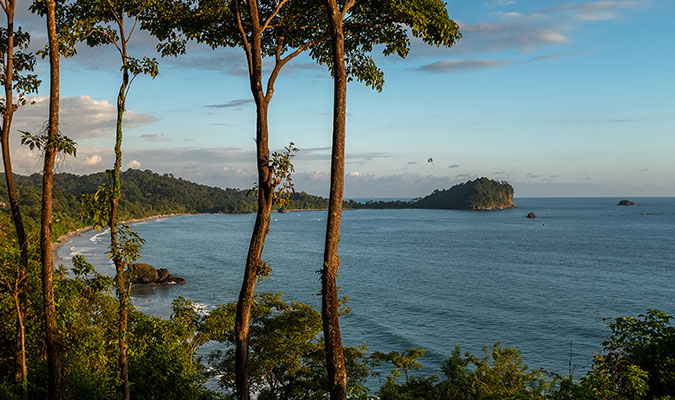
Motivation is Contagious
Our expert believes that when people are given the opportunity to thrive, they not only elevate themselves but inspire others around them. The ripple effect is real – when team members see someone from a similar background rising through the ranks, it sparks a “If they can do it, I can do it!” mentality. While it might be easier to bring in pre-qualified experts from abroad, fostering local talent keeps the experience authentic and deeply rooted in the community. Hans shared an inspiring example of a 17-year-old who walked into a Cayuga hotel looking for a job. Ten years later, she’s now the general manager of a globally renowned eco-lodge. Similarly, at Arenas del Mar, a man who helped construct the hotel moved from being a driver to a bellboy, then to reception, and eventually became operations manager. “He didn’t speak English or have formal education, but now he’s making a huge difference in the development of the hotel,” Hans shared. Allan, the operations manager at Senda Monteverde, began as a gardener and worked his way through different roles before landing a management position. Stories like these show the true power of self-determination.
Transferring Positive Impact
Sustainable tourism is more than just protecting the environment – it’s about creating meaningful connections that benefit both travelers and local communities. As Hans says, “Sustainable tourism only works if it benefits the visitor and the visited.” Years ago, he realized that you can’t have a five-star hotel in a one-star community. To make tourism truly sustainable, it must uplift everyone. That’s why Cayuga hotels are deeply integrated with their surrounding areas, hiring locals who are often involved in neighborhood organizations, from school boards to environmental groups. This connection goes beyond staffing. Guests are encouraged to explore outside the hotel – hire a local guide, eat at a restaurant outside the hotel, or shop at a nearby store. It’s about spreading the tourism dollar, not keeping it contained.
One of the most heartwarming examples is Cayuga’s employee stayover program, where the team’s families are invited to stay at the hotel, enjoy the same moments as paying guests, and feel part of the hotel community. This creates a knock-on effect as the special guests go home, talk about their experiences, and become advocates for Cayuga’s work. When communities are empowered, so is responsible tourism, proving that a shared experience is a stronger one.
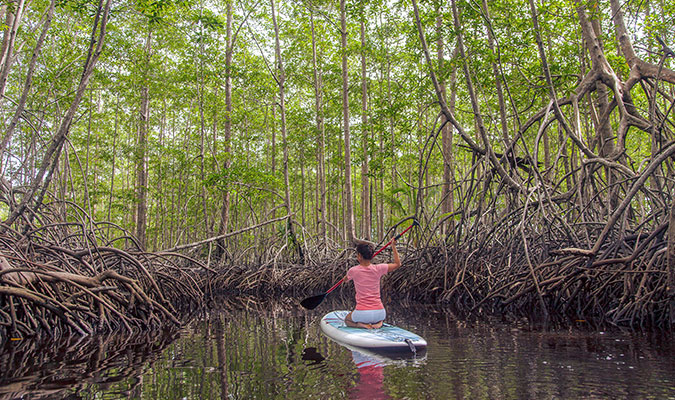
Luxury Rewilded
For a long time, there was hesitation to pair the words “luxury” and “sustainability.” But now, with confidence, Cayuga embraces the idea of “Luxury Rewilded” – a concept that proves these two worlds can not only coexist but thrive together. Hans explained that their journey begins with the land itself. “Arenas del Mar used to be a pasture for goats. Aguas Claras was a cacao plantation. Isla Palenque had subsistence farming, and Senda’s buildings were abandoned for ten years before we took over and brought life back to it.” It’s about regeneration, not just for nature, but for the people too. Locals become guardians of these once-forgotten lands, excited to protect and restore them, passing that passion on to guests.
This is not about the most polished, traditional sense of luxury, but a more genuine, rough-around-the-edges version. In the words of Hans, “Maybe not the most luxurious kind of luxury, but the most authentic.” As Hans sees it, the future of luxury travel will divide into two paths: those seeking a self-contained, manicured experience, and those who crave something more real – a luxury that’s imperfect but profoundly meaningful.
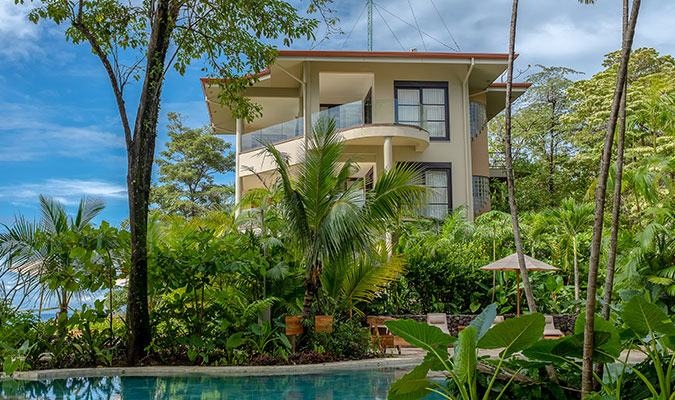
Spreading the Word
At Cayuga, sustainability is all about making a positive impact – without being preachy. It’s something guests experience in fun, engaging ways that feels accessible and enjoyable. As Hans says, “We’ve been fine-tuning this for years, finding ways to make sustainability fun, not a reprimand.” One of the longest-running initiatives is Cayuga’s back-of-house sustainability tour, where guests get a transparent look at the inner workings of the hotel. From seeing the laundry operations to meeting the chickens and touring the treatment plant, guests leave with a deeper understanding of what it takes to run a sustainable hotel. It’s a behind-the-scenes peek that often turns guests into sustainability advocates.
Hans also penned the amazing “Cayuga Way Journal”—a beautifully crafted coffee table book filled with stories of the people and practices behind the scenes. Guests at Cayuga hotels can sit on the terrace, sip their coffee, and immerse themselves in these stories, often reading about people they might meet during their stay. And for hands-on learning, Cayuga offers snackable, bite-sized activities like salsa dancing, coffee roasting, or even a rum-tasting class, where guests can engage with staff and learn in a playful, interactive way. These experiences spark conversations about sustainability and inspire guests to take a bit of the Cayuga Way home with them.
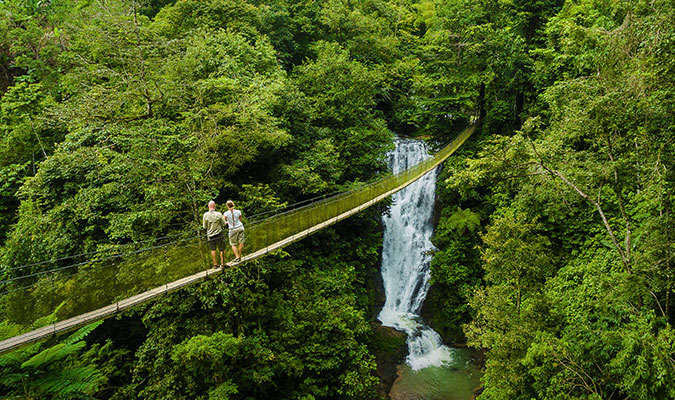
STAY WITH THE CAYUGA COLLECTION ON YOUR NEXT COSTA RICA ADVENTURE!
A heartfelt thank you to Hans Pfister for sharing his wisdom and dedication to sustainable travel. Get in touch with Journey Costa Rica’s expert travel planners and experience the Cayuga Collection firsthand. We’ll help you craft a tailormade itinerary that lets you explore these extraordinary hotels while immersing yourself in the beauty and authenticity of Costa Rica. Your adventure awaits – let’s make it unforgettable!
